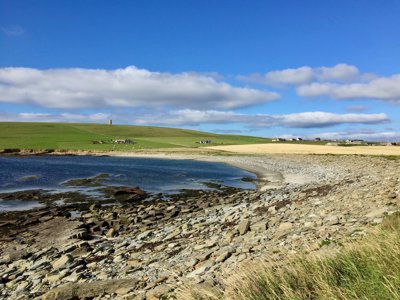Researchers from the School of Geography and Sustainable Development at the University of St Andrews have worked with international partners to expand blue carbon knowledge by analysing sediment in fjordic sea lochs to deliver national-scale marine carbon stock assessments for Scotland.
Issue
Carbon management is a critical part of mitigating the climate crisis. To enable effective decisions on the future of our planet, timely and accurate information on the potential of natural carbon sinks is essential. Until recently, the magnitude and role of carbon stored in marine sediments (‘blue carbon’) within the carbon cycle was not well understood.
Approach
Researchers from St Andrews analysed sediment cores from Scottish sea lochs for carbon and discovered that these sediments stored blue carbon in significant amounts.
In 2017, this research was upscaled to deliver carbon assessments for all 110 Scottish sea lochs, and to assess carbon storage in Scotland’s Inshore Marine Protected Area Network (MPAs).
The team pioneered a multi-tier approach to map the spatial heterogeneity of sedimentary carbon in mid-latitude fjords. In 2018, the Scottish Government commissioned the team to deliver these innovative approaches and to work with researchers at Heriot-Watt University to make an audit of Orkney’s blue carbon resources in its marine habitats.
Impact
The work has provided key scientific evidence to the Scottish Government and influenced policy debate on climate change. In 2018, the Scottish Government incorporated blue carbon storage, for the first time, into its ‘Climate Change Plan: third report on proposals and policies 2018–2032’.
The assessment of Orkney’s blue carbon stocks, commissioned by the Scottish Government as part of Orkney’s Marine Planning analysis, represents a major environmental and political national milestone. This was the first time that an audit of blue carbon had been included alongside habitat assessment and marine spatial planning.
The evidence for blue carbon potential has inspired the R&A, a prestigious commercial golfing organisation, to develop nature-based solutions to mitigate climate and coastal changes across the UK and Ireland. The research team advised the R&A on their Golf Course Action Plan.
More information
Institution: University of St Andrews
Researchers: Professor William Austin, Dr Craig Smeaton
Share this resource
This is an open access article under the terms of the Creative Commons Attribution License (CC BY NC 4.0), which permits use, adaptation, distribution and reproduction in any medium or format, provided the original work is cited and it is for non-commercial purposes. Please contact us for other uses.
How to cite
Royal Geographical Society (with IBG) (2023) Assessing Blue Carbon Resources: Ensuring Coastal Protection and Climate Change Mitigation through Scotland’s natural carbon sinks. Available at https://rgs.org/bluecarbonresources Last accessed on: <date>
